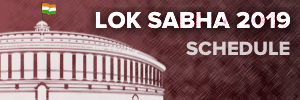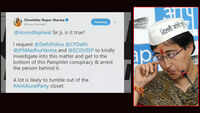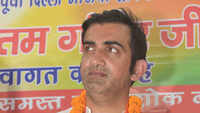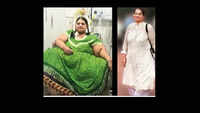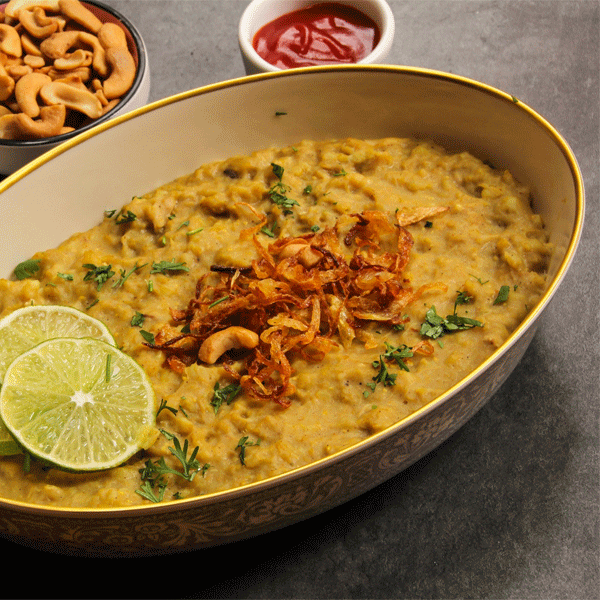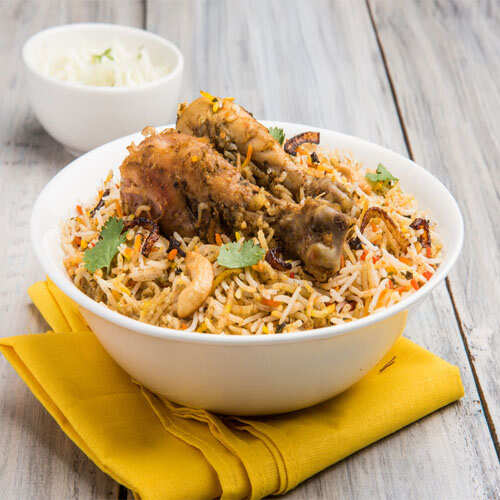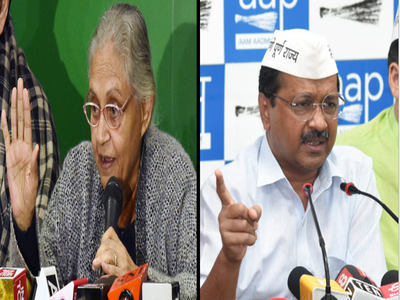
NEW DELHI: Narendra Chauhan, a resident of northeast Delhi’s Babarpur, is sure of two things: one, that his locality has seen no development in the last five years, sanitation is poor and sewage flows on to the roads; and, two, that he will still vote for “Modiji” because “there is no other option and the BJP government should get another five years”. There are many in Chauhan’s North East Delhi constituency — as well as for the six other seats in the city — who have pledged their allegiance to one of the three: BJP, Congress and Aam Aadmi Party.
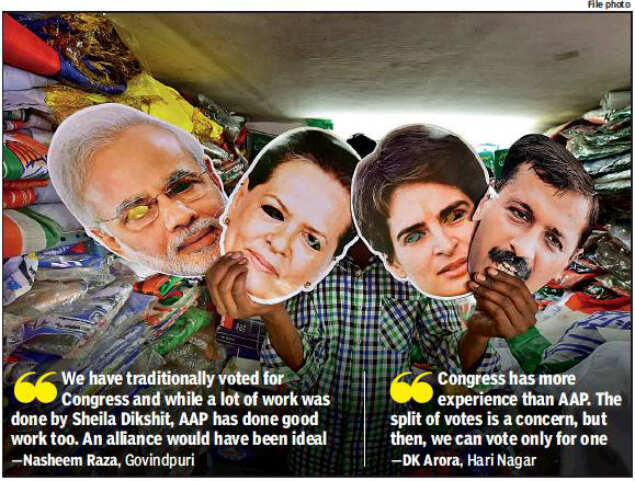
But there is a large category of voters that doesn’t want to vote for BJP but is unsure of which EVM button to press, come Sunday. Many people TOI spoke to said a Congress-AAP alliance would have made their decision that much easier. Those banking on the tie-up were left in a fix after talks between the two parties fell through, for there is a strong likelihood that a split in votes will ultimately help BJP. Both Congress and AAP have a similar voter base — residents of unauthorised colonies, traders and the minorities. AAP’s recent work in Delhi, ranging from education, mohalla clinics and new sewer lines with a reduction in water and electricity bills, has made the choice that much tougher.
“We have traditionally voted for Congress and while a lot of work was done by former chief minister Sheila Dikshit during her three tenures, AAP has done good work too under Arvind Kejriwal. An alliance would have been ideal,” said Nasheem Raza, a Govindpuri resident. The fact that it is a national-level party may work in Congress’ favour, some felt. But Raza’s neighbour, Ajay Pandey, said he would rather go with AAP. “There have been no power cuts in the last few years. Water and power supply has improved and our bills have come down. Why shouldn’t we vote for the AAP?” asked Pandey.
Opinion is similarly divided in other parts of Delhi. DK Arora of Hari Nagar in west Delhi claimed that people had suffered a lot under BJP’s rule. “Congress has more experience than AAP. The split of votes is a concern, but then, we can vote only for one,” he said.
Dharmendra Singh Chawla, a resident of Anand Niketan in New Delhi, said he wanted to make his vote count and would pick the candidate most likely to win.
In Dilshad Garden (North East), while Shamit Bhandari was unhappy with BJP’s performance, he was unsure about his choice. “They made too many promises, but didn’t fulfil them,” he said, adding: “I don’t think demonetisation was a wise move because the common man didn’t gain much from it. But I’m not sure who I will vote for as I don’t want my vote to go waste. I may eventually vote for BJP because I am not sure about the alternative to Narendra Modi as Prime Minister.”
Mohammad Kafeel from Seelampur, meanwhile, said AAP’s good work in education and health may eat into Congress’ share. “A lot of people are now inclined towards AAP simply for the work it has done, especially in the fields of education and health. This means a lot of votes will get split, even in my own family,” Kafeel said.
Kafeel’s thoughts were echoed by Mohd Yusuf, a resident of Jaffrabad in northeast Delhi. “An AAP-Congress alliance would have been helpful for voters like us who are now in a fix. While there are many traditional Congress supporters in the area, the number of people who align with the AAP has also grown,” he said.

But there is a large category of voters that doesn’t want to vote for BJP but is unsure of which EVM button to press, come Sunday. Many people TOI spoke to said a Congress-AAP alliance would have made their decision that much easier. Those banking on the tie-up were left in a fix after talks between the two parties fell through, for there is a strong likelihood that a split in votes will ultimately help BJP. Both Congress and AAP have a similar voter base — residents of unauthorised colonies, traders and the minorities. AAP’s recent work in Delhi, ranging from education, mohalla clinics and new sewer lines with a reduction in water and electricity bills, has made the choice that much tougher.
“We have traditionally voted for Congress and while a lot of work was done by former chief minister Sheila Dikshit during her three tenures, AAP has done good work too under Arvind Kejriwal. An alliance would have been ideal,” said Nasheem Raza, a Govindpuri resident. The fact that it is a national-level party may work in Congress’ favour, some felt. But Raza’s neighbour, Ajay Pandey, said he would rather go with AAP. “There have been no power cuts in the last few years. Water and power supply has improved and our bills have come down. Why shouldn’t we vote for the AAP?” asked Pandey.
Opinion is similarly divided in other parts of Delhi. DK Arora of Hari Nagar in west Delhi claimed that people had suffered a lot under BJP’s rule. “Congress has more experience than AAP. The split of votes is a concern, but then, we can vote only for one,” he said.
Dharmendra Singh Chawla, a resident of Anand Niketan in New Delhi, said he wanted to make his vote count and would pick the candidate most likely to win.
In Dilshad Garden (North East), while Shamit Bhandari was unhappy with BJP’s performance, he was unsure about his choice. “They made too many promises, but didn’t fulfil them,” he said, adding: “I don’t think demonetisation was a wise move because the common man didn’t gain much from it. But I’m not sure who I will vote for as I don’t want my vote to go waste. I may eventually vote for BJP because I am not sure about the alternative to Narendra Modi as Prime Minister.”
Mohammad Kafeel from Seelampur, meanwhile, said AAP’s good work in education and health may eat into Congress’ share. “A lot of people are now inclined towards AAP simply for the work it has done, especially in the fields of education and health. This means a lot of votes will get split, even in my own family,” Kafeel said.
Kafeel’s thoughts were echoed by Mohd Yusuf, a resident of Jaffrabad in northeast Delhi. “An AAP-Congress alliance would have been helpful for voters like us who are now in a fix. While there are many traditional Congress supporters in the area, the number of people who align with the AAP has also grown,” he said.
Download The Times of India News App for Latest Elections News.
#ElectionsWithTimes
more from times of india news
Quick Links
Lok Sabha Election Schedule 2019Lok Sabha Election NewsDelhi Capitals teamMI team 2019Rajasthan Royals 2019RCB team 2019Maharashtra Lok Sabha ConstituenciesBJP Candidate ListBJP List 2019 TamilnaduShiv Sena List 2019AP BJP List 2019Mamata BanerjeeBJP List 2019 MaharashtraPriyanka GandhiBJP List 2019 KarnatakaAMMK Candidate List 2019BJP List 2019 WBLok Sabha Elections in Tamil NaduBSP List 2019 UPNews in TamilLok Sabha Poll 2019Satta Matka 2018PM ModiMahagathbandhanNagpur BJP Candidate ListChandrababu NaiduTamil Nadu ElectionsUrmila MatondkarNews in TeluguMadras High CourtTejashwi YadavArvind KejriwalTejasvi SuryaPawan KalyanArvind KejriwalYogi AdityanathJaya PradaSatta King 2019Srinagar encounter
Get the app

